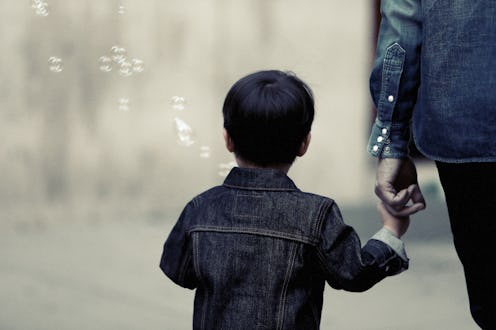
If having kids is on your radar, you probably spend a lot of time thinking about what good parenting is and isn't. After all, you're basically establishing another person's entire foundation; it's normal to want reassurance that you're doing the things great parents do. Of course, depending on your personal belief system, your definition of "great parenting" might vary heavily from someone else's. That's OK! At the end of the day, you instill in your offspring what you think is most important. That said, it's always interesting to see things from a kid's perspective, too. What do adult children reflect on and think their parents taught them best? What lessons made a life-long impact?
Redditor MedievalAstronaut posted the question, "Redditors with great parents, what did they do RIGHT?" to the AskReddit community yesterday, and responses positively blew up, with over four thousand people reflecting back and celebrating their parents. I don't have kids yet myself, but I do know what my own experience was as a kid. My family instilled value for hard work, manners, and respect for others into me as a kid, and as a result, those values are definitely on my mind on a daily basis as an adult. And, as it turns out, the same is true for a lot of other adults, if this Reddit thread is any indication. Below, check out 13 things that Redditors believe great parents do; find the full thread over at AskReddit for more.
1. Always Answer Questions — Even The Annoying Ones
If there's one thing kids do, it's ask, "Why?" Before long, "Why?" can become the response to pretty much anything you say to a kid (or to a teenager, for that matter). It's important to remember that when kids ask, "Why?", they're (usually) not trying to be annoying; they're trying to learn. When parents answer the "why" question — even if it's to say, "I don't know; let's try to find out together" — it shows that they're involved in their child's learning, as well as making their voice feel respected and listened to.
2. Instill A Love For Reading
OK, fellow Millennials, let's admit it: Some of your fondest memories with your parents involve them reading Harry Potter to you (or at least with you) before bed, am I right?
3. Teach 'Em The Truth — Even When Those Truths Are Hard
Sometimes it's better for kids to learn the truth from their parents, even if it's uncomfortable or painful. Especially when it comes to traditionally taboo topics in the United States — like sexual health, for example — it's often better for parents to answer than for kids to go searching for answers from unreliable sources of information (or misinformation).
4. Know That Unconditional Love Changes Everything
While no one likes being disciplined by their parents, if you know your parents are acting out of love and concern for your well-being, it's easier to learn from the experience — in both the short term and the long run.
5. Remember That Balance Is Key
Knowing that you're loved, but also knowing that you're probably going to get your cell phone taken away for the rest of the week is a huge bummer; however, it's also likely to teach kids that their actions have consequences. You can love someone and still let them know when they've done something wrong.
6. Remind Kids They're Not The Center Of The World
If there's one thing kids (and admittedly, even adults) struggle with, it's remembering that they're not the center of the universe. While everyone matters and deserves attention and respect, it's also important to teach kids that sometimes other people matter more in a particular moment, and that you need to be respectful and considerate for others. Basically, it's not always about you, and that's OK.
7. Accept Your Child Regardless Of Sexual Orientation
Studies show that when parents accept their LGBTQ children, LGBTQ youth are less likely to attempt suicide. This matters so much.
8. Be There For Them Even When They've Messed Up
In an ideal world, kids and teenagers would never make bad decisions. In reality, though, everyone experiments and tests their boundaries — and it can save a life both literally and metaphorically if you know that your parents will be there to have your back in case of an emergency or if things get out of hand.
9. Encourage Your Kids To Own Their Emotions
Everyone has bad days sometimes, and it's normal to have the occasional meltdown where you just need some support and time to get it all out of your system. However, it's also imperative to teach kids that ultimately they are responsible for their reactions and responses to whatever happens in their lives, and no one else.
10. Teach Them That A Job Is Just A Job
A job title only refers to someone's employment, not their worth as a person. The same is true for a lot of other things, too, from what they look like to how much money they have.
11. Instill The Knowledge That Self-Sufficiency Breeds Lifelong Independence
When you learn how to do basic tasks and take care of yourself as a kid, you'll carry those habits into adulthood.
12. Demonstrate That Love and Compassion Are Key
People with mental illness deserve the same love, respect, and care as anyone else — as does literally every other person in this world, whether or not you agree with them.
13. Remind Them That Owning Up To Your Actions Builds Character
Sometimes when life gets hard, it is the fault of someone else. But let's be honest: Sometimes it's our own fault, too. Knowing when to take responsibility for your actions and decisions can help you evaluate future stressful situations and better understand your role when things get tough.
Images: Lifeofpix.com/Pexels